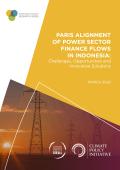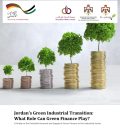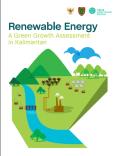This case study, From Digging to Planting: A Sustainable Economic Transition for Berau, East Kalimantan, produced by the Climate Policy Initiative as part of Project LEOPALD or Low Emissions Oil Palm Development examines whether palm oil’s potential as an economic driver will bear out for Indonesia’s goals, using Berau as an example case.
Indonesia’s economy has seen rapid growth in recent decades, largely driven by natural resource extraction and land-based commodity production. Coal mining has featured prominently. The District of Berau, in East Kalimantan, is a case in point. In Berau, the mining sector regularly contributes more than 60% to Berau’s Gross Regional Domestic Product (GRDP) and coal royalties contribute about a quarter of the district government’s overall revenue.
However, this dependence on coal has made Berau’s fiscal conditions fragile, with lower coal prices shocking the economy into a budget deficit in 2015 and 2016. The growth rate of the coal sector has diminished in recent years and price uncertainty makes it challenging for Berau to rely solely on mining to drive development and provide fiscal stability. The government acknowledges that its focus on resource extraction is not sustainable for the longterm and is beginning to shift its attention from mining to cultivation, with an emphasis on palm oil.
Prima facie, this appears to be a good strategy. Palm oil provides promise as a substitute to a coal-based economy. Even withstanding an economic slowdown at the national level, palm oil has provided a steady economic growth and jobs to Indonesians.



